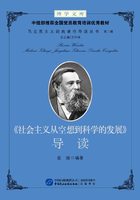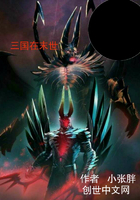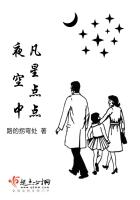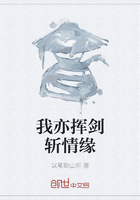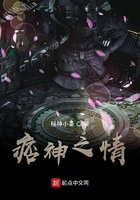Finally Ignat arose from the floor, kicked the priest, and, flinging at him a package of money, said morosely, with a smile:
"Rabble! Can a man repent before such people? Some are afraid to hear of repentance, others laugh at a sinner. I was about to unburden myself completely; the heart trembled. Let me, Ithought. No, I didn't think at all. Just so! Get out of here! And see that you never show yourself to me again. Do you hear?""Oh, a queer fellow!" said the crowd, somewhat moved.
Legends were composed about his drinking bouts in town; everybody censured him strictly, but no one ever declined his invitation to those drinking bouts. Thus he lived for weeks.
And unexpectedly he used to come home, not yet altogether freed from the odour of the kabaks, but already crestfallen and quiet.
With humbly downcast eyes, in which shame was burning now, he silently listened to his wife's reproaches, and, humble and meek as a lamb, went away to his room and locked himself in. For many hours in succession he knelt before the cross, lowering his head on his breast; his hands hung helplessly, his back was bent, and he was silent, as though he dared not pray. His wife used to come up to the door on tiptoe and listen. Deep sighs were heard from behind the door--like the breathing of a tired and sickly horse.
"God! You see," whispered Ignat in a muffled voice, firmly pressing the palms of his hands to his broad breast.
During the days of repentance he drank nothing but water and ate only rye bread.
In the morning his wife placed at the door of his room a big bottle of water, about a pound and a half of bread, and salt. He opened the door, took in these victuals and locked himself in again. During this time he was not disturbed in any way;everybody tried to avoid him. A few days later he again appeared on the exchange, jested, laughed, made contracts to furnish corn as sharp-sighted as a bird of prey, a rare expert at anything concerning his affairs.
But in all the moods of Ignat's life there was one passionate desire that never left him--the desire to have a son; and the older he grew the greater was this desire. Very often such conversation as this took place between him and his wife. In the morning, at her tea, or at noon during dinner hour he gloomily glared at his wife, a stout, well-fed woman, with a red face and sleepy eyes, and asked her:
"Well, don't you feel anything?"
She knew what he meant, but she invariably replied:
"How can I help feeling? Your fists are like dumb-bells.""You know what I'm talking about, you fool."
"Can one become pregnant from such blows?"
"It's not on account of the blows that you don't bear any children; it's because you eat too much. You fill your stomach with all sorts of food--and there's no room for the child to engender.""As if I didn't bear you any children?"
"Those were girls," said Ignat, reproachfully. "I want a son! Do you understand? A son, an heir! To whom shall I give my capital after my death? Who shall pray for my sins? Shall I give it to a cloister? I have given them enough! Or shall I leave it to you?
What a fine pilgrim you are! Even in church you think only of fish pies. If I die, you'll marry again, and my money will be turned over to some fool. Do you think this is what I am working for?"And he was seized with sardonic anguish, for he felt that his life was aimless if he should have no son to follow him.
During the nine years of their married life his wife had borne him four daughters, all of whom had passed away. While Ignat had awaited their birth tremblingly, he mourned their death but little--at any rate they were unnecessary to him. He began to beat his wife during the second year of their married life; at first he did it while being intoxicated and without animosity, but just according to the proverb: "Love your wife like your soul and shake her like a pear-tree;" but after each confinement, deceived in his expectation, his hatred for his wife grew stronger, and he began to beat her with pleasure, in revenge for not bearing him a son.
Once while on business in the province of Samarsk, he received a telegram from relatives at home, informing him of his wife's death. He made the sign of the cross, thought awhile and wrote to his friend Mayakin:
"Bury her in my absence; look after my property."Then he went to the church to serve the mass for the dead, and, having prayed for the repose of the late Aquilina's soul, he began to think that it was necessary for him to marry as soon as possible.
He was then forty-three years old, tall, broad-shouldered, with a heavy bass voice, like an arch-deacon; his large eyes looked bold and wise from under his dark eyebrows; in his sunburnt face, overgrown with a thick, black beard, and in all his mighty figure there was much truly Russian, crude and healthy beauty; in his easy motions as well as in his slow, proud walk, a consciousness of power was evident--a firm confidence in himself. He was liked by women and did not avoid them.
Ere six months had passed after the death of his wife, he courted the daughter of an Ural Cossack. The father of the bride, notwithstanding that Ignat was known even in Ural as a "pranky"man, gave him his daughter in marriage, and toward autumn Ignat Gordyeeff came home with a young Cossack-wife. Her name was Natalya. Tall, well-built, with large blue eyes and with a long chestnut braid, she was a worthy match for the handsome Ignat. He was happy and proud of his wife and loved her with the passionate love of a healthy man, but he soon began to contemplate her thoughtfully, with a vigilant eye.
Seldom did a smile cross the oval, demure face of his wife--she was always thinking of something foreign to life, and in her calm blue eyes something dark and misanthropic was flashing at times.






